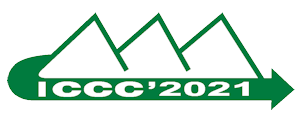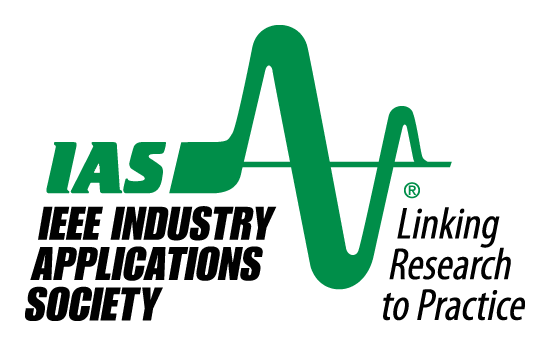ICCC 2021
22nd International Carpathian Control Conference
Conference ID: 51557
Conference Proceedings
Where
virtual conference
When
Monday to Tuesday
May 31 - June 1, 2021
About the conference
The aim of the conference is to support exchange of information and experience in the field of automation of engineering and production, in research, applications, and education. The conference will enable presentation of most recent advances in complex automation, robotics, modelling, control of production and technological processes, including quality control systems oriented to environment, means of support, and information technologies.
The scientific program of the ICCC 2021 conference is divided in eleven main areas which will run in parallel:
- Measurement, sensors, monitoring and diagnostic systems.
- Identification, modeling and simulation of processes and systems.
- Theory and application of control systems.
- Automation, mechatronics, robotics.
- Intelligent embedded systems and instrumentation.
- Information systems (SCADA/HMI, GIS, MES) and their Internet support.
- Engineering application of informatics.
- Quality control systems (TQM), production management and industrial logistics.
- Engineering education in control and computer systems.
- Fractional calculus and its applications.
- Industry 4.0.
The official language of the conference is English.
Proceedings from 2011 to 2020 are available at IEEE Xplore and are indexed by Scopus database, proceedings from 2013 to 2020 also in Web of Science.
Important deadlines
Instructions for presenters
- The length of the presentation is max. 15 minutes including discussion.
- The platform for the online session is Google Meet. Please, read the requirements.
- It's possible to share higher-quality video with audio content in a Meet video call using Chrome tab feature.
- Registered participants will receive a detailed programme with the link for connection by email.
- Support help: iccc2021@vsb.cz
- Only those papers that are presented at the conference will be published in conference proceedings.
Instructions for camera-ready papers
- Take comments by the reviewers into account and prepare your camera-ready paper.
- Go to IEEE PDF eXpress and create an user account with ConferenceID: 51557X
- Login to your IEEE PDF Express account and upload your camera-ready paper (Word, (La)TeX or PDF) for conversion and checking IEEE Xplore®-compatibility. Save your acceptable IEEE Xplore-compatible PDF.
- Go to EasyChair and choose proceedings author role (important!).
- Submit your IEEE Xplore-compatible PDF to Proceedings ICCC2021.
- In the EasyChair Proceedings ICCC2021 also signs an IEEE copyright agreement. Click on "Alerts" in the main menu and then click on "IEEE copyright agreement for paper". You will be redirected to sign the electronic version of the copyright agreement.
Instructions for writing papers
- Use IEEE template for your paper: IEEE template.
- Use EasyChair conference system to upload your paper: EasyChair.
- Length of paper should be 4-6 pages. Please use font type and size as it is specified in the document template (Times New Roman, size 10).
- Only those papers that are presented at the conference will be published in conference proceedings.
- Insert the copyright notice in the footnote of the first page of your source document. As follows:
- For papers in which all authors are employed by the US government, the copyright notice is: U.S. Government work not protected by U.S. copyright
- For papers in which all authors are employed by a Crown government (UK, Canada, and Australia), the copyright notice is: 978-1-7281-8609-2/21/$31.00 ©2021 Crown
- For papers in which all authors are employed by the European Union, the copyright notice is: 978-1-7281-8609-2/21/$31.00 ©2021 European Union
- For all other papers the copyright notice is: 978-1-7281-8609-2/21/$31.00 ©2021 IEEE
Instructions for submit abstract
Use EasyChair conference system to upload your abstract: EasyChair
Conference Fee & registration
Full registration
€ 100
(early bird payment till 21. 4. 2021)
€ 120
(standard payment till 21. 5. 2021)
- access to virtual conference
- proceedings publication
Keynote Speakers

Tomáš Vyhlídal
CTU in Prague

Vítězslav Lukáš
ABB Country Managing Director
Programme
Opening Ceremony
Plenary Session: Tomáš Vyhlídal
Time delay algorithms for vibration suppression, theory and applications
The talk will start with a brief introduction to the spectral theory of time delay systems. An emphasis will be laid on analysis of retarded and neutral chains of time delay system roots. Interestingly, the undesirable closed loop neutrality, potentially forming root chains with infinitely many unstable roots, can arise if time delay algorithms are applied to vibration suppression and control of flexible mechanical systems. This phenomenon will be targeted for three case study applications with the aim either to make the neutrality ‘safe’ or to remove it by structural adjustment of the controller (compensator). Vibration suppression by delayed resonator - an ideal active vibration absorber - will be addressed as the first application. After the problem formulation, analysis of the original resonator feedback with a lumped delay will be performed. It will be followed by an analysis of the novel delayed resonator with a distributed delay. Next to the signal filtering, the main benefit of the distributed delayed resonator is its retarded spectrum of zeros. Finally, a recently proposed two dimensional delayed resonator for planar vibration absorption will be presented. Analogously to the delayed resonator adjustment, substitution of the lumped delay by a distributed delay proved useful in the design of input shapers used to pre-compensate oscillatory modes of flexible mechanical systems, crane applications in particular. Design and performance aspects will be addressed for this second case study. Specifically, it will include the composed optimal design followed by both stability and robustness analysis. The last presented case study application will be the repetitive control used to ideally track or fully compensate periodic signals. Also in this case, the closed loop neutrality needs to be removed to turn the feedback to an applicable form. Next to theoretical analysis of the given case study problems, throughout the talk, results of laboratory experiments and industrial applications will be presented.
Break
Session 1: Theory and application of control systems
Session 2: Measurement, sensors, monitoring and diagnostic systems
Lunch break
Session 1: Theory and application of control systems
Session 2: Measurement, sensors, monitoring and diagnostic systems
Session 3: Identification, modeling and simulation of processes and systems
Plenary Session: Vítězslav Lukáš
Reflection of industry transformation from perspective of automation leader
Industry, Energy and whole way of working is changing at pace which we have not experienced before. Let me share with you practical implementation of new trends in daily business.
Break
Session 2: Measurement, sensors, monitoring and diagnostic systems
Session 3: Identification, modeling and simulation of processes and systems
Lunch break
Session 3: Identification, modeling and simulation of processes and systems
Session 4: Engineering education in control and computer systems. Information systems (SCADA/HMI, GIS, MES) and their Internet support. Intelligent embedded systems and instrumentation. Quality control systems (TQM), production management and industrial logistics.
Closing Ceremony
Patrons and supporters
Department of Control Systems and Instrumentation
Faculty of Mechanical Engineering,VŠB – Technical University of Ostrava,
Czech Republic
Institute of Control and Informatization of Production Processes
Faculty of Mining, Ecology, Process Control and Geotechnologies,Technical University of Košice
Slovak Republic
Department of Automation and Communication Technology
Faculty of Mechanical Engineering and Informatics,University of Miskolc,
Hungary
Department of Process Control
Faculty of Mechanical Engineering and Robotics,AGH University of Science and Technology, Cracow,
Poland
Faculty of Automation, Computers and Electronics
University of Craiova,Romania
Committees
Chair
Renata Wagnerová, VŠB – Technical University of Ostrava (CZ)
Honorary Chair
Bogdan Sapiński, AGH University of Science and Technology (PL)
Radim Farana, Mendel University in Brno (CZ)
Co-chairs
Marek Laciak, Technical University of Košice (SK)
Agata Nawrocka, AGH University of Science and Technology (PL)
Dan Popescu, IEEE, University of Craiova (RO)
József Vásárhelyi, IEEE, University of Miskolc (HU)
Publication Chairs
Pavel Smutný, VŠB – Technical University of Ostrava (CZ)
Organizing Committee
Renata Wagnerová, VŠB – Technical University of Ostrava (CZ)
Marek Babiuch, VŠB – Technical University of Ostrava (CZ)
Pavel Smutný, VŠB – Technical University of Ostrava (CZ)
Lenka Landryová, VŠB – Technical University of Ostrava (CZ)
International Technical Program Committee
Milan Adámek, Tomas Bata University in Zlín (CZ)Marek Babiuch, VŠB – Technical University of Ostrava (CZ)
Áron Ballagi, Széchenyi István University (HU)
Marian Barbu, "Dunărea de Jos" University of Galati (RO)
Andrzej Bartoszewicz, Technical University of Lodz (PL)
Pavol Bauer, IEEE, Netherlands (NL)
Andrzej Bąkowski, Kielce University of Technology (PL)
Mehmet Bozca, Technical University of Yildiz (TR)
Sándor Tihamér Brassai, Hungarian University of Sapientia (RO)
Tomáš Březina, Brno University of Technology (CZ)
Attila Buchman, University of Debrecen (HU)
Yang Quan Chen, IEEE, University of California (USA)
László Czap, IEEE, University of Miskolc (HU)
Tamás Dabóczi, Budapest University of Technology and Economics (HU)
Daniela Danciu, IEEE, University of Craiova (RO)
László Dávid, Hungarian University of Sapientia (RO)
Fodor Dénes, IEEE, University of Pannonia (HU)
Eva Dulf, IEEE, Technical University of Cluj-Napoca (RO)
František Dušek, University of Pardibuce (CZ)
Kaziemierz Dzierżek, Bialystok University of Technology (PL)
Miroslav Fikar, Slovak Technical University of Bratislava (SK)
Anna Filasova, Technical University of Košice (SK)
Manuel Eduardo Flores Moran, IEEE, Universitaria Salvador Allende (EC)
Janusz Gołdasz, Cracow University of Technology (PL)
Dariusz Grzybek, AGH University of Science and Technology (PL)
György Györök, IEEE, Óbuda University (HU)
Eugen Iancu, University of Craiova (RO)
Dagmar Janáčová, Tomas Bata University in Zlín (CZ)
Csaba Johanyák, IEEE, Neumann János University (HU)
Ján Kačur, Technical University of Košice (SK)
Péter Kádár, IEEE, Óbuda University (HU)
Karol Kostúr, Technical University of Košice (SK)
Andrzej Kot, IEEE, AGH University of Science and Technology (PL)
László Kovács, University of Miskolc (HU)
Szilveszter Kovács, University of Miskolc (HU)
Tamás Kovácsházy, Budapest Univ. of Technology and Economics (HU)
Štefan Kozák, Pan-European University of Bratislava (SK)
Martin Kozek, Vienna University of Technology (AT)
Jiří Koziorek, VŠB – Technical University of Ostrava (CZ)
Dušan Krokavec, Technical University of Košice (SK)
Lenka Landryová, VŠB – Technical University of Ostrava (CZ)
Ciprian Lupu, IEEE, Politehnica University of Bucharest (RO)
Andrea Mojžišová, Technical University of Košice (SK)
Liviu Miclea, IEEE, Technical University of Cluj-Napoca (RO)
Agata Nawrocka, AGH University of Science and Technology (PL)
Petr Noskievič, VŠB – Technical University of Ostrava (CZ)
Petr Novák, VŠB – Technical University of Ostrava (CZ)
Sorin Olaru, IEEE, Centrale Supelec (FR)
István Oniga, University of Debrecen (HU)
Štěpán Ožana, VŠB – Technical University of Ostrava (CZ)
Marek Pawełczyk, Silesian University of Technology (PL)
Ewa Pawłuszewicz, Bialystok University of Technology (PL)
Octavian Păstrăvanu, IEEE, Technical University of Iași (RO)
Ivo Petráš, IEEE, Technical University of Košice (SK)
Emil Petre, IEEE, University of Craiova (RO)
Krzysztof Pietrusewicz, West Pomeranian University of Technology (PL)
Judit Pintér, University of Miskolc (HU)
Igor Podlubný, IEEE, Technical University of Košice (SK)
Dan Popescu, IEEE, University of Craiova (RO)
Radu-Emil Precup, IEEE, Politehnica University of Timișoara (RO)
Jose Ragot, Université de Lorraine (FR)
Vladimir Răsvan, IEEE, University of Craiova (RO)
Monica Roman, IEEE, University of Craiova (RO)
Imre Rudas, IEEE, Óbuda University (HU)
Tamás Ruzsányi, IEEE, Ganz-Skoda Electric Ltd (CZ)
Bogdan Sapiński, AGH University of Science and Technology (PL)
Dan Selișteanu, IEEE, University of Craiova (RO)
Dorin Șendrescu, IEEE, University of Craiova (RO)
Dominik Sierociuk, IEEE, Warsaw University of Technology (PL)
Andrzej Sioma, AGH University of Science and Technology (PL)
László Sujbert, Budapest University of Technology and Economics (HU)
Miloš Šeda, Brno University of Technology (CZ)
Ján Terpák, Technical University of Košice (SK)
Attila Trohák, University of Miskolc (HU)
Jiří Tůma, VŠB – Technical University of Ostrava (CZ)
Andrzej Urbaniak, Poznan University of Technology (PL)
Vladimír Vašek, Tomas Bata University in Zlín (CZ)
József Vásárhelyi, IEEE, University of Miskolc (HU)
Honoriu Vălean, IEEE, Technical University of Cluj-Napoca (RO)
János Végh, University of Miskolc (HU)
Vojtech Vesely, Slovak University of Technology (SK)
Ramon Vilanova, Universitat Autonoma de Barcelona (ES)
Blas M. Vinagre, IEEE, Universidad de Extremadura (ES)
Antonín Víteček, VŠB – Technical University of Ostrava (CZ)
Miluše Vítečková, VŠB – Technical University of Ostrava (CZ)
Renata Wagnerová, VŠB – Technical University of Ostrava (CZ)
Peiyi Zhu, Changshu Institute of Technology (CN)
Quan Min Zhu, University of the West of England (UK)
Contact Us
Address
VSB - Technical University of OstravaDepartment of Control Systems and Instrumentation
17. listopadu 2172/15
70800 Ostrava - Poruba
Czech Republic


